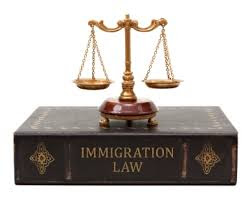Nonaccountability is a basic and controversial occupant of the UK legal system that clasps that attorneys are not morally accountable for who their clients are, what their clients have performed, or what attorneys will carry out for their clients as long as it is within the boundaries of the law. In regard to legal-representation, context, the client defines the objectives of the representation and contributes in decisions regarding how to meet those objectives; the attorney works as a facilitator and an advisor.
Under the nonaccountability concept, the corporate lawyer in London is not morally responsible for the purposes of the client or the penalties of achieving those objectives. Attorneys are, hence, disincentivized to practice their own moral judgments when deciding whom to represent.
The conventional arguments in favour of nonaccountability are not feasibly applied to corporate-transactional work for various reasons. First, this work does not take place in an antagonist system in which there is, in theory, a neutral decision-maker and honest process. Second, corporate-transactional work typically does not perform as a check on governmental capability. Third, due to for-profit corporations are legal fictions considered as individuals for some purposes of the law, but are not autonomous moral actors capable of free will or autonomous responsible citizenship, they lack many of the key characteristics that justify an attorney's suspension of moral judgment. Finally, transactional work generally does not arbitrate moral disputes in a public forum, but instead deals with private conduct out of the public eye.
As a result, a corporate lawyer in London doing transactional work for business entities needs their own justifications for nonaccountability. The most powerful argument is that by helping these clients order their future activities, lawyers can assist with preventing future illegal activity. For example, by helping a business-entity client create a sexual-harassment policy, the client might avoid incidents of sexual harassment in the workplace.
Dissimilar from the justifications for criminal and litigation lawyering, however, the disagreement for nonaccountability of attorneys representing corporate clients is not universal. Representation of a corporation that is demanding to comply with environmental laws and representation of a corporation that is trying to get around the spirit of those same laws while still not violating them, merit different moral treatment. Similarly, representing a tobacco corporation in establishing a sexual-harassment policy has a strengthened claim of lawyer nonaccountability (helping the client comply with law) than representing that same corporation in bringing its product to a new and unregulated overseas market, which may be legal, but potentially immoral.'" In the absence of systematic explanations, lawyers doing corporate-transactional work for business entities must value the work by considering the morality of the work itself.



